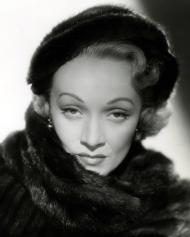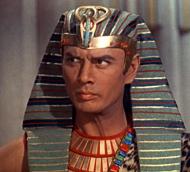Who dated Marlene Dietrich?
Jean Gabin dated Marlene Dietrich from ? until ?. The age gap was 2 years, 4 months and 20 days.
John F. Kennedy dated Marlene Dietrich from ? until ?. The age gap was 15 years, 5 months and 2 days.
John Wayne dated Marlene Dietrich from ? until ?. The age gap was 5 years, 4 months and 29 days.
Yul Brynner dated Marlene Dietrich from ? until ?. The age gap was 18 years, 6 months and 14 days.
Wilhelm Michel dated Marlene Dietrich from until ?.
Erich Maria Remarque dated Marlene Dietrich from until ?. The age gap was 3 years, 6 months and 5 days.
Marlene Dietrich

Marie Magdalene "Marlene" Dietrich (, German: [maʁˈleːnə ˈdiːtʁɪç] ; 27 December 1901 – 6 May 1992) was a German-American actress and singer whose career spanned nearly seven decades. In 1920s Berlin, she performed on the stage and in silent films. Her performance as Lola Lola in Josef von Sternberg's The Blue Angel (1930) brought her international acclaim and a contract with Paramount Pictures. Dietrich starred in many Hollywood films, including six roles directed by Sternberg: Morocco (1930) (her only Academy Award nomination), Dishonored (1931), Shanghai Express and Blonde Venus (both 1932), The Scarlet Empress (1934), The Devil Is a Woman (1935). Throughout World War II, she was a high-profile entertainer in the United States. Although she delivered notable performances in several post-war films, including Billy Wilder's A Foreign Affair (1948), Alfred Hitchcock's Stage Fright (1950), Billy Wilder's Witness for the Prosecution (1957), Orson Welles's Touch of Evil (1958), and Stanley Kramer's Judgment at Nuremberg (1961), she spent most of the 1950s to the 1970s touring the world as a marquee live-show performer.
Dietrich was known for her humanitarian efforts during World War II, housing German and French exiles, providing financial support and advocating their American citizenship. For her work on improving morale on the front lines during the war, she received various honors from the United States, France, Belgium, and Israel. In 1999, the American Film Institute named Dietrich the ninth greatest female screen legend of classic Hollywood cinema.
Read more...Jean Gabin

Jean Gabin Alexis Moncorgé (born Jean-Alexis Moncorgé), known as Jean Gabin (French: [ʒɑ̃ gabɛ̃]; 17 May 1904 – 15 November 1976), was a French actor and singer. Considered a key figure in French cinema, he starred in several classic films, including Pépé le Moko (1937), La grande illusion (1937), Le Quai des brumes (1938), La bête humaine (1938), Le jour se lève (1939), and Le plaisir (1952). During his career, he twice won the Silver Bear for Best Actor from the Berlin International Film Festival and the Volpi Cup for Best Actor from the Venice Film Festival, respectively. Gabin was made a member of the Légion d'honneur in recognition of the important role he played in French cinema.
Read more...Marlene Dietrich

John F. Kennedy

John Fitzgerald Kennedy (/d͡ʒɑn fɪtsˈd͡ʒɛɹəld ˈkɛnədi/ ), dit Jack Kennedy (/ˈd͡ʒæk ˈkɛnədi/), généralement appelé John F. Kennedy et également connu sous ses initiales JFK, né le à Brookline (Massachusetts) et mort assassiné le à Dallas (Texas), est un homme d'État américain. Membre du Parti démocrate, il est le 35e président des États-Unis, en fonction du jusqu'à sa mort.
Après avoir combattu dans la guerre du Pacifique, il entre en politique en 1946 et y exerce comme représentant puis sénateur du Massachusetts. À 43 ans, il remporte l'élection présidentielle de 1960 face à Richard Nixon et devient le plus jeune président élu des États-Unis, et également le plus jeune président à mourir, moins de trois ans après son entrée à la Maison-Blanche, à l'âge de 46 ans. En outre, il est le premier président américain de religion catholique.
Il laisse son empreinte dans l'histoire des États-Unis par sa gestion de la crise des missiles de Cuba, son autorisation du débarquement de la baie des Cochons, son engagement pour le traité d'interdiction partielle des essais nucléaires, le programme Apollo dans le cadre de la course à l'espace, son opposition à la construction du mur de Berlin, sa politique d'égalité des sexes et son assassinat. Ses prises de position en faveur de l'accord général sur les tarifs douaniers et le commerce lui valent d'être respecté jusque chez les républicains, et le mouvement afro-américain des droits civiques — qu'il soutient, voulant mieux intégrer les minorités dans la société — qui prend place durant sa présidence annonce la déségrégation.
En campagne pour sa réélection en vue de l'élection présidentielle de 1964, il circule dans Dallas le à bord d'un véhicule découvert devant un public nombreux : alors qu'il traverse Dealey Plaza, des coups de feu retentissent et des tirs l'atteignent mortellement. Malgré la désignation par la Commission Warren de Lee Harvey Oswald comme le seul coupable, les circonstances de son assassinat font l'objet de nombreuses enquêtes, ouvrages écrits et filmés, interprétations et théories du complot.
Read more...Marlene Dietrich

John Wayne

Marion Robert Morrison, dit John Wayne (/d͡ʒɑn weɪn/), est un acteur, réalisateur et producteur américain, né le à Winterset (Iowa) et mort le à Los Angeles (Californie).
Au cours de ses cinquante ans de carrière, il a joué dans près de 180 films, notamment des films policiers, des films de guerre et quelques comédies romantiques ; mais c'est dans ses nombreux westerns que John Wayne s'est réellement imposé, particulièrement sous la direction de deux réalisateurs : John Ford (La Chevauchée fantastique en 1939, Le Massacre de Fort Apache et Le Fils du désert en 1948, La Charge héroïque en 1949, Rio Grande en 1950, L'Homme tranquille en 1952, La Prisonnière du désert en 1956 ou encore L'Homme qui tua Liberty Valance en 1962) et Howard Hawks (La Rivière rouge en 1948, Rio Bravo en 1959, El Dorado en 1966 ou Rio Lobo en 1970). Il a tourné également plusieurs films sous la direction d'Henry Hathaway, dont Cent Dollars pour un shérif en 1969, qui lui valut en 1970 l'Oscar du meilleur acteur (l'unique Oscar de sa carrière).
En 1960, il passe derrière la caméra pour réaliser une fresque historique d'envergure, Alamo, relatant les derniers jours de Davy Crockett et ses compagnons lors de la révolution texane. Huit ans plus tard, il coréalise Les Bérets verts (1968), film engagé justifiant l'intervention américaine au Viêt Nam. Ses deux réalisations ont reflété l'engagement personnel de John Wayne, républicain et ardent patriote.
Classé 13e plus grande star de légende par l'American Film Institute en 1999, John Wayne a certainement été l'un des acteurs les plus représentatifs du western, une incarnation à lui seul de l'Amérique conquérante.
Surnommé « The Duke » (« le Duc »), il reste encore aujourd'hui, grâce à ses films, le symbole d'une ostensible masculinité. Il a interprété ce rôle d'homme viril, dur, solitaire et quelque peu machiste, mais généreux et au cœur sensible, tout au long de sa carrière, et ces rôles ont fini par influencer son comportement dans la vie, ses engagements allant de plus en plus vers le Parti républicain. Il déclara : « J'ai joué John Wayne dans tous mes films et ça m'a plutôt pas mal réussi. »
Read more...Marlene Dietrich

Yul Brynner

Yuliy Borisovich Briner (Russian: Юлий Борисович Бринер; July 11, 1920 – October 10, 1985), known professionally as Yul Brynner (Russian: Юл Бриннер), was a Russian and American actor. He was known for his portrayal of King Mongkut in the Rodgers and Hammerstein stage musical The King and I (1951), for which he won two Tony Awards, and later an Academy Award for Best Actor for the 1956 film adaptation. He played the role 4,625 times on stage, and became known for his shaved head, which he maintained as a personal trademark long after adopting it for The King and I.
Considered one of the first Russian-American film stars, he was honored with a ceremony to put his handprints in front of Grauman's Chinese Theatre in Hollywood in 1956. He also received a star on the Hollywood Walk of Fame in 1960.
In 1956, Brynner received the National Board of Review Award for Best Actor for his portrayals of Rameses II in the Cecil B. DeMille epic The Ten Commandments and General Bounine in Anastasia. He was also well known as the gunman Chris Adams in The Magnificent Seven (1960) and its first sequel, Return of the Seven (1966). He had roles as the android "The Gunslinger" in Westworld (1973) and its sequel Futureworld (1976).
In addition to his film credits, he worked as a model and photographer, and wrote several books.
Read more...Marlene Dietrich

Wilhelm Michel
Wilhelm Michel, genannt Willy Michel (geboren 1901; gestorben Juni 1988) war ein deutscher Bäcker, Kommunalpolitiker in Hannover, Wehrwirtschaftsführer für Niedersachsen sowie Liebessubjekt der Schauspielerin Marlene Dietrich. Die Anfang des 21. Jahrhunderts aufgefundenen Liebesbriefe der Dietrich an Wilhelm Michel gelten als „die frühesten bislang bekannten Dokumente des Weltstars.“
Read more...Marlene Dietrich

Erich Maria Remarque

Erich Maria Remarque (; German: [ˈeːʁɪç maˈʁiːa ʁəˈmaʁk] ; born Erich Paul Remark; 22 June 1898 – 25 September 1970) was a German novelist. His landmark novel All Quiet on the Western Front (1928), based on his experience in the Imperial German Army during World War I, was an international bestseller which created a new literary genre of veterans writing about conflict. The book was adapted to film several times. Remarque's anti-war themes led to his condemnation by Nazi propaganda minister Joseph Goebbels as "unpatriotic". He was able to use his literary success and fame to relocate to Switzerland as a refugee, and to the United States, where he became a naturalized citizen.
Read more...